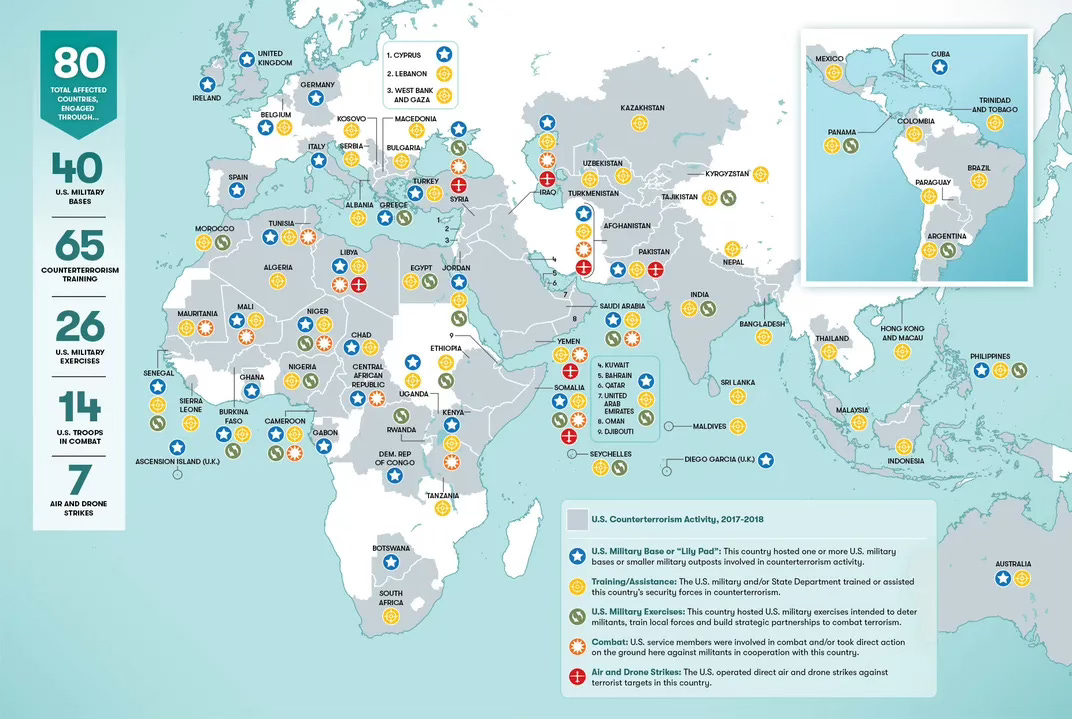W.J. Astore
We can’t have a president that focuses on domestic concerns!
In my “daily briefing” from Reuters yesterday, an old canard popped up again:
As Donald Trump strengthens his lead in the race for the Republican nomination, some US allies are worried about an American turn toward isolationism, a shift that would reflect an electorate largely focused on domestic issues.
We can’t have a U.S. electorate focused on domestic issues! That would be “isolationism.” America must lead! Because Iraq, Afghanistan, Syria, Libya, Somalia, Yemen, Gaza, et al.

These concerns about “isolationism” always amuse me. The U.S. has roughly 800 overseas bases and a military configured for global reach, global power, and full-spectrum dominance. What are the odds that the U.S. empire is going to abandon all this and turn to isolationism under the visionary and dynamic leadership of Donald J. Trump? It’s not like America became isolationist when Trump was president from 2017 to 2021.
The smartest thing the next U.S. president could do is to start dismantling this costly global empire while reinvesting in America. This is not “isolationism.” This is common sense. Yet “isolationism” is the scary word that’s tossed out there to prevent any downsizing of America’s imperial bootprint.
Speaking of empire and bootprints, William Hartung has an excellent article at TomDispatch on the bottomless pit that is Pentagon spending. As Hartung succinctly puts it in his subtitle: “Overspending on the Pentagon is Stealing Our Future.” You can see how the military-industrial-congressional complex strikes back at any talk of focusing on domestic concerns—America can’t come home and put its own house in order. That’s isolationist! That would “worry” our allies, who need us and our global military.
Maybe those allies, if they’re truly worried, could choose to spend more on their own militaries? Not that I’m worried that our allies genuinely fear a less interventionist America.
As I read and digested Hartung’s article, I had the following disconnected thoughts that I sent along to a friend.
It seems one of the few things Congress can agree on is funding the military, weaponry, bases, etc. They continue to feed a monster because they personally profit from it and/or are afraid to challenge it. Presidents as diverse as Bush, Obama, Trump, and Biden refuse to challenge it as well.
The entire system is cowardly. What the British termed LMF: lack of moral fiber. Or what MLK Jr. diagnosed as a form of spiritual death.
The solution? Wish I knew. The awfulness of the Vietnam War spawned a strong and committed antiwar movement, but now America’s wars and profits have been outsourced to Ukraine, Israel, etc. The monster is flexible and adaptable. It is so intertwined with our society and culture today that to reform it meaningfully would require major invasive surgery that might just kill the patient, meaning America as we know it.
I urge you to read Hartung’s article and then ask yourself if America is in any danger of turning to isolationism under Biden or Trump or any other major candidate for the presidency in 2024. The idea is arrant nonsense.



